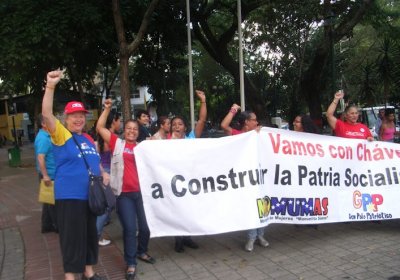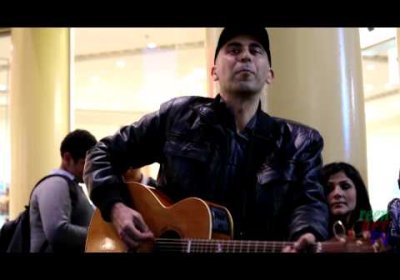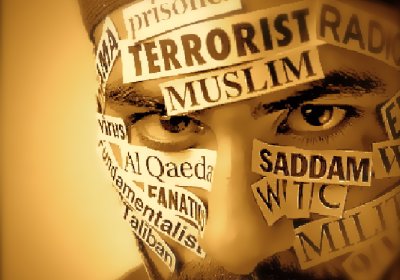As Venezuela's October 7 presidential elections approach, polls are showing a clear, large victory for President Hugo Chavez, with a 13%-28% lead.
The socialist incumbent — who has survived a US coup and other attempts to overthrow his government — is campaigning on a detailed platform to deepen the social changes that are redistributing wealth and political power to the poor majority. His right-wing opponent, Henri Capriles Radonski, supports privatising state industry and cutting social spending.
939
Phil Monsour sings a pro-Palestine version of "Which side are you on" at the Adelaide Seacret protest prior to the Boycott, Divestment and Sanctions national workshop weekend on September 21.
With little fanfare or media attention, the small island nation of Cuba has been running an Aboriginal literacy program in the town of Wilcanni, in central new South Wales. Already, 16 local Aboriginal residents aged between 25 and 53 have learned to read and write through the program.
As the final weeks of the Venezuelan presidential election campaign unfold, an intense battle of ideas is under way. The poll on October 7 is looming as one of the most important elections in the country´s history.
Twenty-three years too late, the real truth is finally being told about the Hillsborough disaster of April 15, 1989, which killed 96 football fans and injured hundreds more.
A new 354-page report, released by the Hillsborough Independent Panel after accessing more than 400,000 pages of secret documents, has implicated the police, media and British government in what has been described as “the biggest cover-up of British legal history”.
After five years of besieging Gaza, Israel announced on September 20 the first significant easing of its near-total export ban. The ban was imposed on the Palestinian territory in 2007 after Hamas won elections.
This turnaround amounts to an admission that Israel’s blockade of Gaza is facing defeat, leaving Tel Aviv casting around for an alternative mechanism of control over the battered enclave.
Khatib Mansour, director of the Israeli army’s Coordination and Liaison Administration for Gaza, said Israel would allow:
* furniture and clothes to be exported from Gaza to the West Bank;
These photos were taken in New York on September 17 by Edward Leavy, who maintains a photo blog here.
With the launch of the Apple iPhone 5 drawing closer, hordes of people around the world scrabbled to their computers to place pre-orders. Hundreds lined up on the streets to be the first to get their hands on the most in-demand gadgetry.
With the pre-order tally reaching more than 2 million within the first 24 hours, it is no surprise that the mineral mining market is booming.
At the heart of the mobile phone production line lies the Democratic Republic of Congo (DRC); a country that has played host to what is likely the world’s deadliest war since World War II.
Toward the United Front, Proceedings of the Fourth Congress of the Communist International, 1922
Edited & translated by John Riddell,
Brill, 2012, 1310 pp.
Many leftists have spent dreary evenings meeting in draughty community halls where the reading of the minutes of previous gatherings seems to drag on interminably. Refreshingly, for a variety of reasons, this 1200-page compendium of 90-year-old proceedings makes for revitalising and pertinent reading.
The Statue Of Liberty: A Transatlantic Story
By Edward Berenson
Yale University Press, 2012,
229 pages , $35.95 (hb)
“We are the keepers of the flame of liberty,” said then-US president Ronald Reagan, opening the centennial celebration in 1986 of the Statue of Liberty in New York Harbour. Reagan claimed the statue as an American beacon of freedom to the world.
As Edward Berenson shows, however, the statue’s political virtue had been compromised long before Reagan’s neo-conservative hypocrisy.
As soon as news filtered through that a “Muslim riot” was taking place in Sydney on September 15, it was clear a racist backlash was going to occur. It was also clear on what grounds the backlash would take place.
Repower Port Augusta, the historic campaign to have the South Australian town host Australia’s first solar-thermal power station, is gathering momentum, with formal endorsements from several health and union organisations.
The campaign has generated widespread public interest. In Port Augusta itself, a community vote in July resulted in one-third of residents voting for solar over gas. The result was 4053 votes to 43, a remarkable turnout for the voluntary exercise.
- Page 1
- Next page








